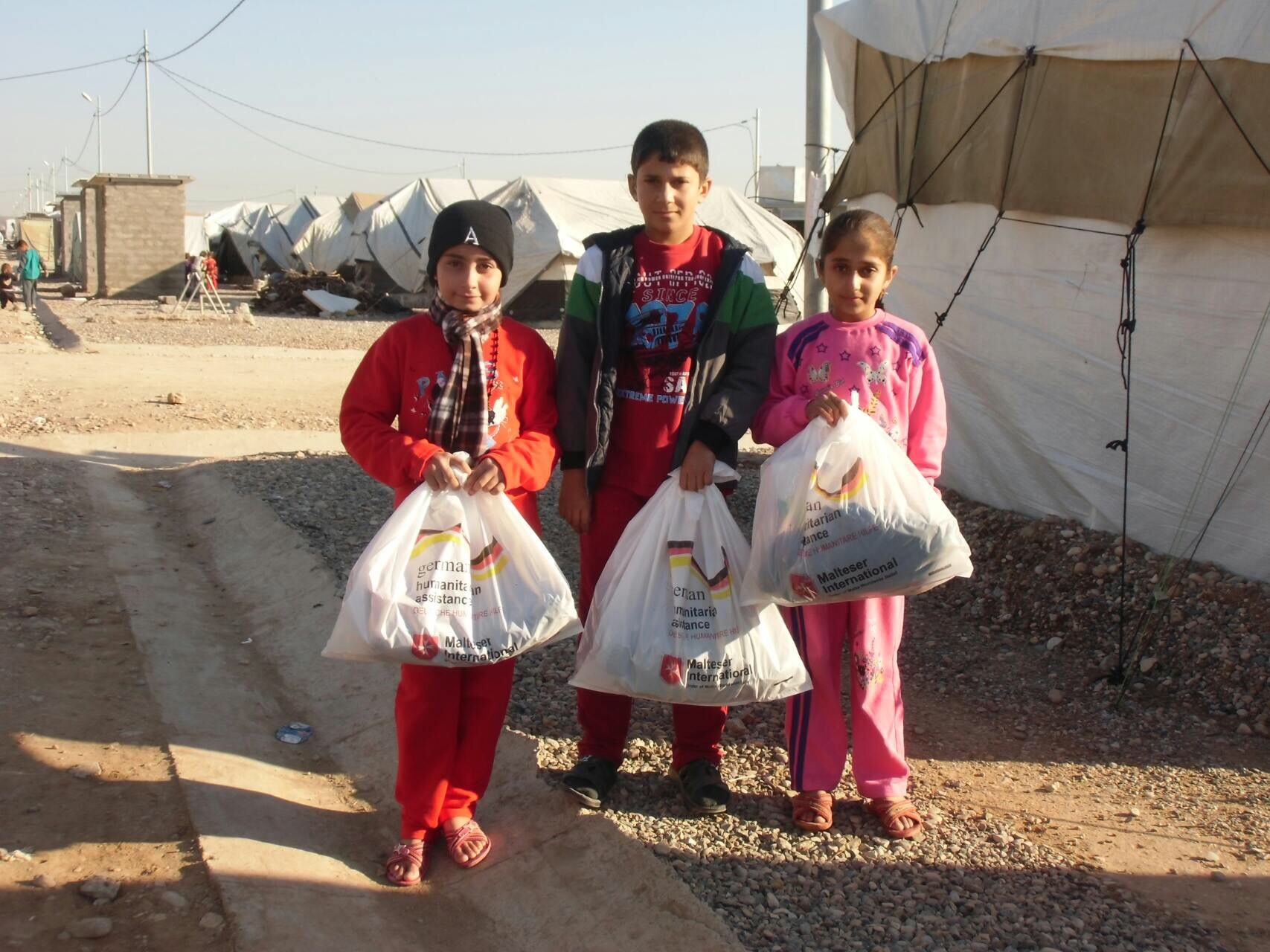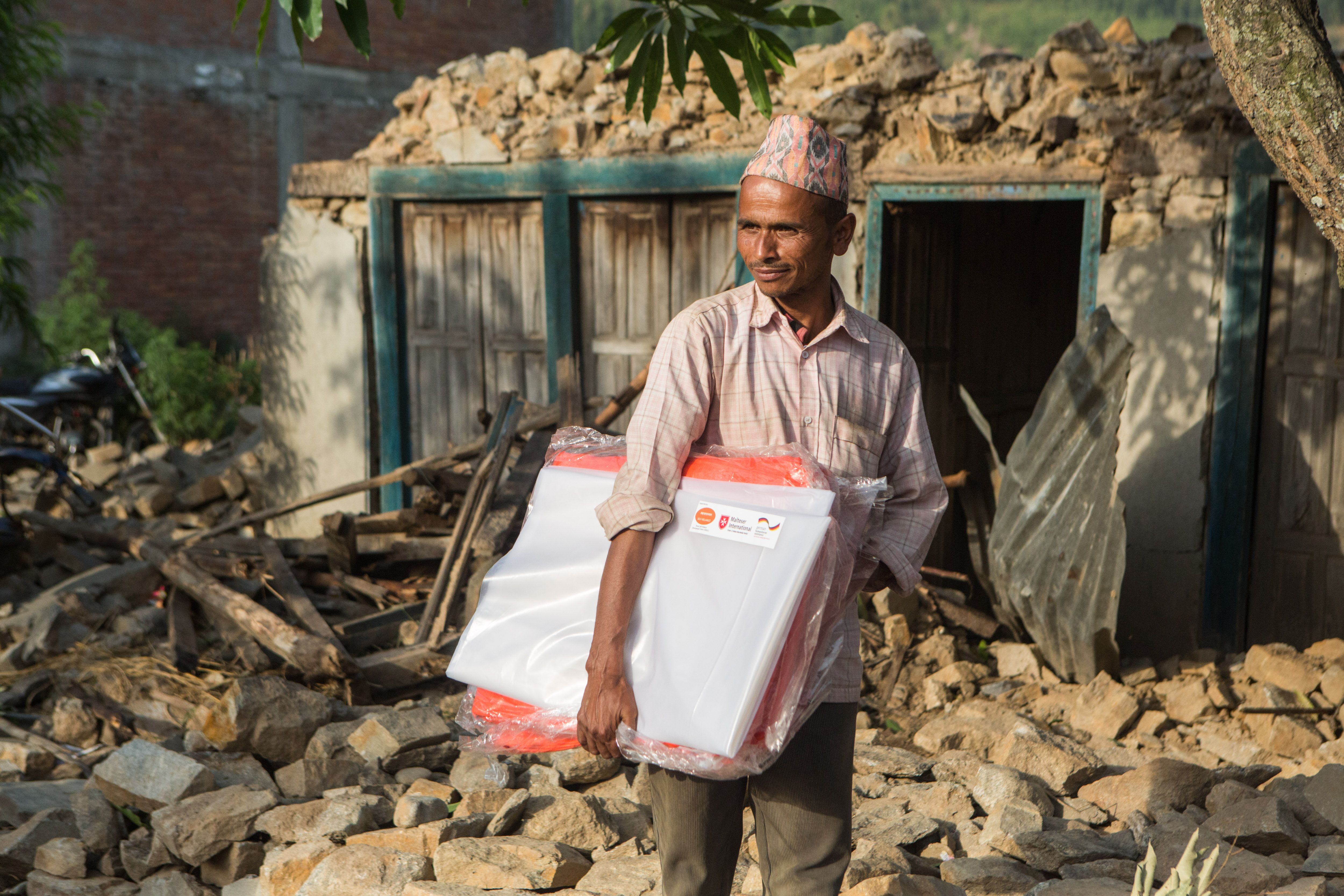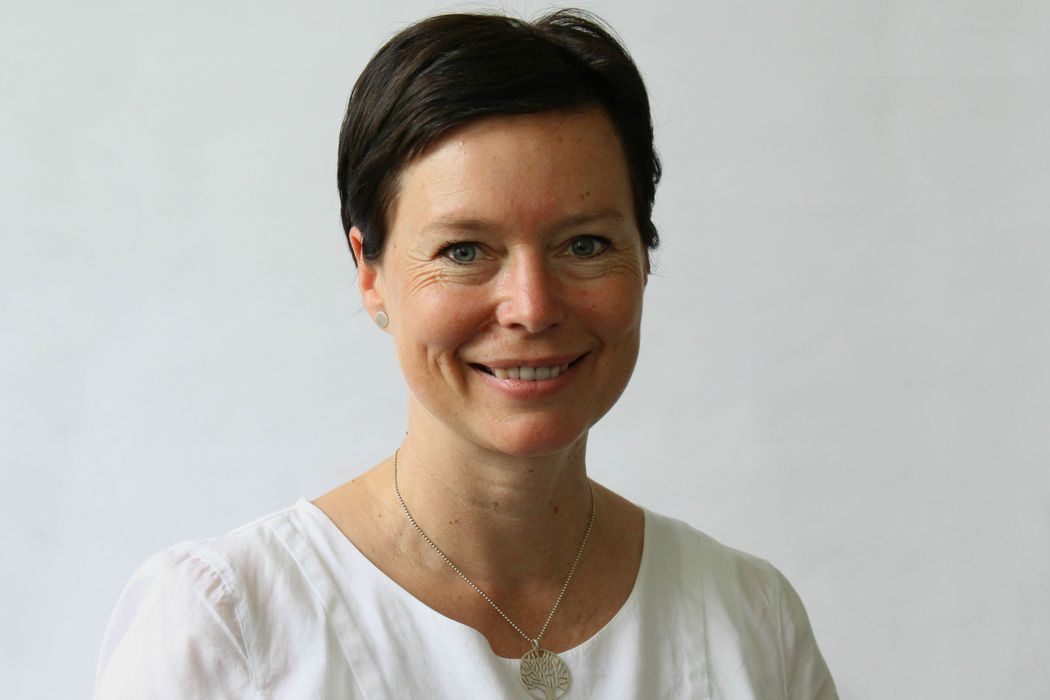Although many parts of the world are experiencing an unusually mild winter, for those who survived last year's earthquake in Nepal, and are still living in tents or improvised shelters with minimal protection from the elements, it can be bitterly cold. In the Middle East, indeed, the weather is unseasonably harsh, rather than mild. The region's millions of refugees have been clinging on in the teeth of snow, rain, and freezing temperatures, which make their already miserable conditions almost unbearable. Teams from Malteser International have been active in many countries to provide winter clothing, stoves and blankets to families in need, to help them to come healthy and safe through the winter.
Nepal: Aid for almost 1,700 earthquake affected families
In the mountain villages north of Kathmandu belonging to the districts of Khavre and Novakot, Malteser International has been active since December with its partners RSDC and Indrawathee distributing winter relief packages to almost 1,700 families, in order to better protect them from the cold and the snow. The packages contain jackets and scarves for children and adults, as well as stoves, blankets, mattresses and tarpaulins. "For the earthquake affected families living at high altitude who are still living in emergency shelters, the winter is especially bad," reports Jürgen Focke, Malteser International's Logistics and Coordination Manager for the emergency relief efforts in Nepal. "Even though the sun makes life a little bit more bearable during the day, the temperature in the mountains drops like a stone to freezing point and below during the afternoon."
Representatives from the village communities selected the families that needed help most urgently - principally families with many children and older people living in tents and emergency shelters in the highest settlements. "Before we distribute the aid to the families, we explain basic fire safety measures to them, to make sure that the stove doesn't cause any accidents, as well as providing some essential hygiene training to make sure that sicknesses don't spread," said Focke.
Because of political problems related to the implementation of Nepal's new constitution in September 2015, blockades on the Nepalese border with India - across which most of the country's essential supplies must pass - have led to severe shortages of food, medicine, and fuel throughout Nepal. Many businesses have been forced to close, and numberless families have lost their incomes. Daily life has become a struggle, and the work of aid agencies has been made immensely more difficult. "We are very happy that despite the blockades we were able to provide these winter kits to the people that need them, and that we could support local producers and businesses to do it," said Focke. Financial support for further winter relief measures is being supplied by ADH - Germany's Relief Coalition, and the European Commission.
Iraq: Winter clothing for 13,000 refugee children
The Dohouk region are home to around half a million displaced people who have fled there seeking safety in the mists of the violent conflict that is consuming the region. At the refugee camps Bersevi II and Khadia, Malteser International has provided 13,000 children and young people with warm shoes, trousers and pullovers, as well as scarves, gloves and hats. "Strong rain and snow, as well as temperatures as low as minus 10 Celsius have made conditions for the refugees, which were bad enough, significantly worse," reports Malteser International's Program Administrator Stefan Jansen from Dohouk. "Many of them are spending the winter in tents, so they urgently need blankets and warm clothes." Since the beginning of 2015, Malteser International has been responsible for a medical center which provides treatment facilities for 10,000 people in the Bersevi II camp, which is run in close collaboration with local health authorities. Most of the camp population is composed of Yazidis - a religious group which is persecuted with extreme violence by ISIS. In June 2015, we opened a further medical facility in the Khadia camp for 15,000 refugees and displaced people. Our work in Iraq is supported financially by the German Federal Foreign Office.
Lebanon: Winter relief for 750 refugee children
The Lebanese Order of Malta began to distribute blankets and winter clothes to refugees in November of 2015 - long before the onset of freezing winter temperatures and heavy rainfall. Around 750 refugee children from Syria and Iraq living in northern Lebanon's Beqaa valley, as well as in the diocese of Mount Lebanon were the primary recipients of the material. According to the assessment of the UN refugee agency UNHCR, it is only possible to provide marginal assistance to the more than a million refugees living in the country - a task that will be made even more difficult by the winter. The many refugees living in the poorest regions of the country, inhabiting improvised tents and shelters, garages or cellars are worst affected, and many of them are unable to access even the most basic of facilities. Malteser International's winter relief to Lebanon is being supported by the Austrian Foundation 'Nachbar in Not'.











